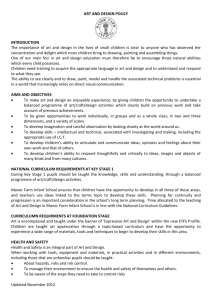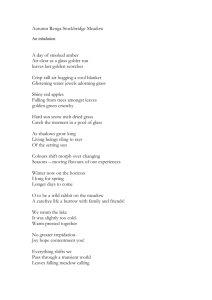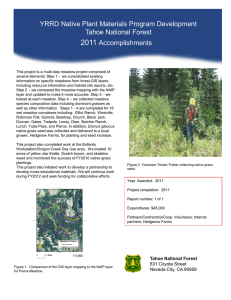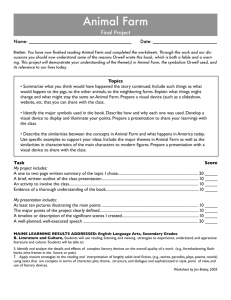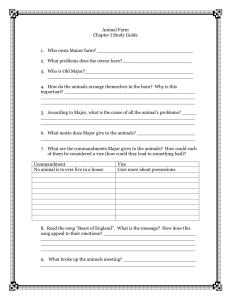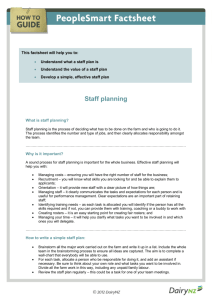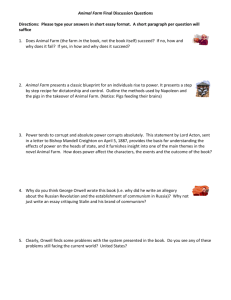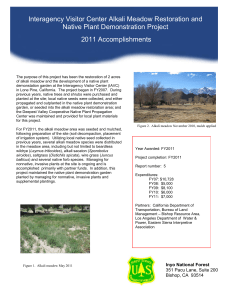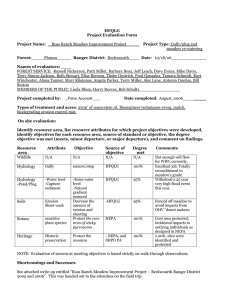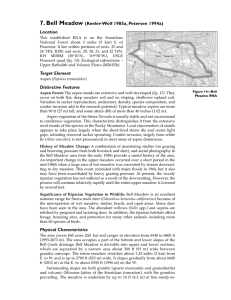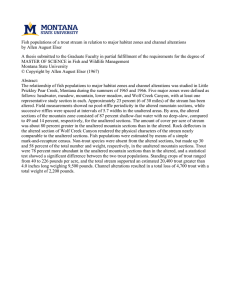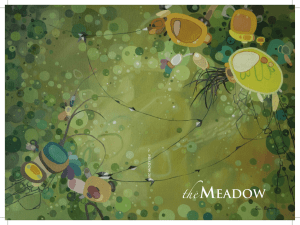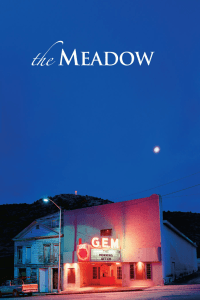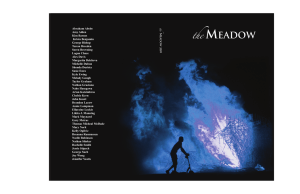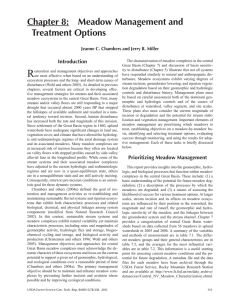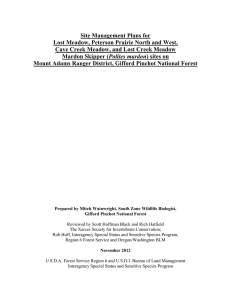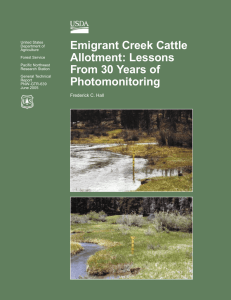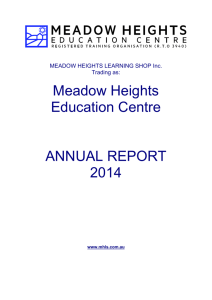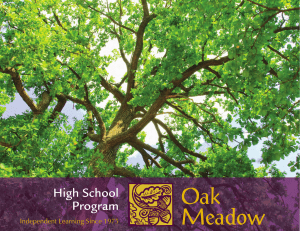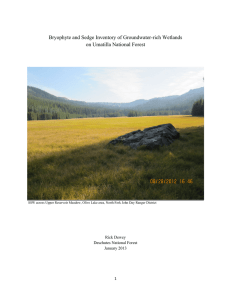Meadow View Farm School
advertisement
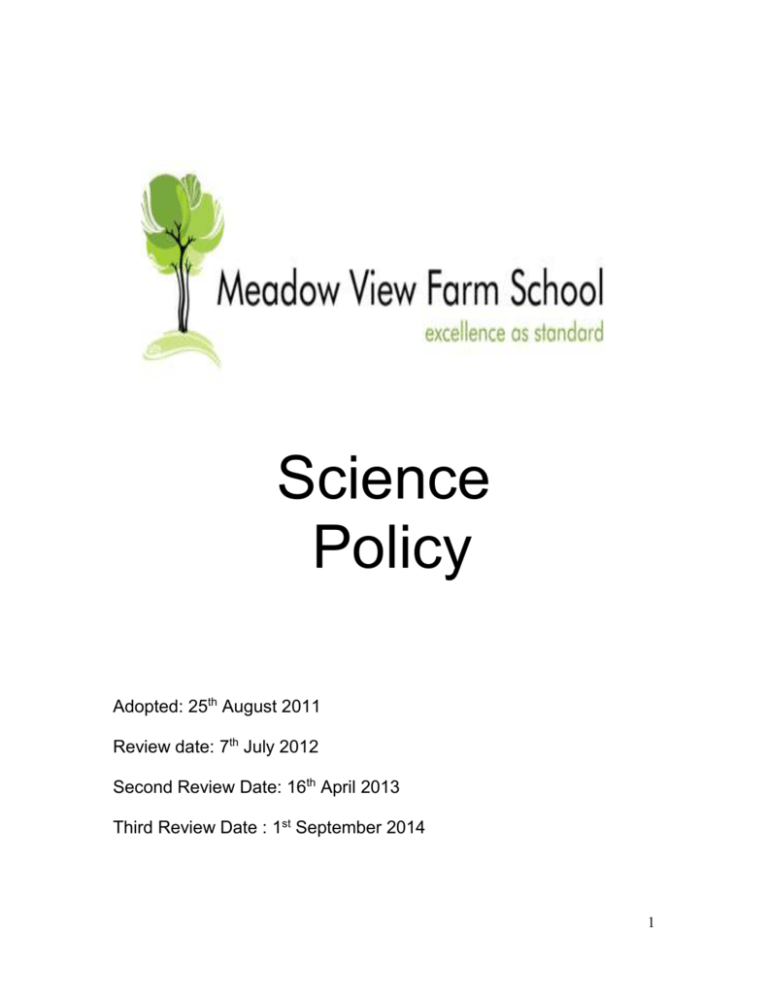
Science Policy Adopted: 25th August 2011 Review date: 7th July 2012 Second Review Date: 16th April 2013 Third Review Date : 1st September 2014 1 Meadow View Farm School Science Policy Introduction Science is a way of working which allows children, through practical first hand experiences and secondary sources, to develop their knowledge and understanding of the world in which they live. These experiences should allow them to observe, investigate, make sense of and communicate their findings. The school is now using the Kent NGFL Science Scheme of Work, Aims and Objectives At Meadow View Farm School we aim to Develop an interest in, and enthusiasm for, science through fun, enjoyable activities; Acquire and apply skills, knowledge and understanding of how science works and its essential role in society; Develop an increasingly critical approach to scientific evidence and methods; Develop children’s ability to work safely. Furthermore, we aim for participation in science by all pupils to ensure access to a broad, balanced curriculum. A. Sequence of knowledge and concepts. 2 In accordance with the guidance in the new National Curriculum, this scheme has a clearly indicated progression in the key scientific knowledge and concepts, from Year 1 to Year 6. Each of the 28 units of study clearly indicates the aspects of knowledge to be developed. Where appropriate, the unit will indicate the ‘learning journey’; i.e. where the knowledge and concepts of that particular unit fit within the learning for that particular aspect of science as the child progresses through the primary phase. B. A range of activities that will enable the children to develop both their scientific understanding and their mastery of the nature, processes and method of science. ‘Working Scientifically’ through a constructivist approach to learning Throughout each and every unit of study the emphasis is on the children learning by doing. In accordance with the constructivist theory of learning, the units encourage the teachers to provide activities that will enable the children to test their previously held ideas. In doing so, they will also be encouraged to develop a bank of skills and an understanding of the processes required to be able to do good science. In every unit of work the most suitable aspects of the statutory requirements for Working Scientifically have been selected. Each of these requirements will be thoroughly covered throughout both of the Key Stages.” Objectives Children who attend Meadow View Farm School will demonstrate knowledge and understanding of the scientific facts, concepts techniques and terminology in the programme of study; Show understanding of how scientific evidence is collected and its relationship with scientific explanations and theories. Plan a scientific task, such as a practical procedure, testing an idea, answering a question or solving a problem. carry out practical tasks safely and skilfully; evaluate the methods they use when collecting first-hand and secondary data; 3 consider the validity and reliability of data in presenting and justifying conclusions Teaching and Learning Science is important because it gives young people skills; knowledge and understanding that help them make sense of the world around them and interrogate sources to test the validity of claims through a logical process. At Meadow View Farm School we aim to provide a curriculum in keeping with the National Curriculum programme of study that is relevant to all pupils. At Meadow View Farm School we aim to create a balance between individual, small group and whole class work. Group work is acknowledged as being particularly valuable as it provides the opportunity for the children to develop their personal and social skills. 1. Long term planning This scheme contains 28 units of study. Each of these units of study has been assigned to a particular Year group inline with the guidance from the National Curriculum (2014). Suggestions have been made as to possible best times of year to study some of the units, as well as when different aspects of learning within a unit will need to be taught at different times across a year. 2. Short term/lesson planning The scheme of work will be invaluable for supporting primary teachers with their lesson planning. Each of the units will have clear and thorough advice on the following aspects of quality provision for science: As far as possible lessons will be planned that involve practical activities to stimulate children’s interest and engage them in their 4 learning. Use of the outdoor areas and the farm should be used where ever possible and practical. Assessment Each class teacher is responsible for assessing and recording pupil progress. Assessments are made through a combination of ongoing teacher assessment and formal tasks. “For each of the units an assessment record sheet has been created. Each of these sheets will allow teachers to record children’s achievements during their studies for both the knowledge aspects within a particular unit, and some of the requirements from Working Scientifically. These record sheets, and the intended learning objectives included in the units of study will enable the teachers to identify what the children need to know or be able to do next, as well as support them at different times in the year to make summative judgements as to the children’s attainment.” These assessments will then be uploaded each term to the “O Track” assessment programme. Resources A resource base will be built up as topics are taught; teachers are expected to request resources in advance of the topic they are teaching in order that relevant and up to date resources are ordered. Cross-curricular Links Science has a set time in the weekly timetable and is taught as a discreet subject. Where possible links should also be made to the wider curriculum. The use of ICT is an important part of helping to investigate and record scientific findings. 5


